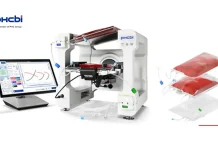Bayer announced the start of a Phase III clinical development program “OCEANIC” to investigate the efficacy and safety of asundexian (BAY 2433334), an investigational oral Factor XIa (FXIa) inhibitor, in patients with atrial fibrillation (irregular heartbeat) and in patients with a non-cardioembolic ischemic stroke or high-risk transient ischemic attack (a stroke that lasts only a few minutes).1,2
The initiation of the OCEANIC program is based on data from the PACIFIC Phase IIb clinical trial program which consisted of one study in each of the following medical conditions: atrial fibrillation, a recent non-cardioembolic ischemic stroke or a recent acute myocardial infarction (heart attack) for a total of three studies.1-5 Results from the PACIFIC-STROKE and PACIFIC-AMI studies were presented today at the European Society of Cardiology Congress (ESC 2022) in Barcelona, Spain. Data from the PACIFIC-AF (atrial fibrillation) study were published in The Lancet 6 and presented at the American College of Cardiology’s 71st Annual Scientific Session.7
Also Read: Regen BioPharma Develops Novel Means of Using CAR-T cell Immunotherapy
The OCEANIC Phase III clinical development program will start with two large multinational studies, OCEANIC-AF and OCEANIC-STROKE, expected to enroll up to 30,000 patients in over 40 countries.1-2
OCEANIC-AF (Phase 3 program of the Oral faCtor Eleven A iNhibitor asundexIan as novel antithrombotic – Atrial Fibrillation study) will investigate asundexian compared to apixaban in patients with atrial fibrillation at risk for stroke.1 The primary objectives of OCEANIC-AF are to determine the effects on prevention of stroke and systemic embolism as well as compare the incidence of International Society on Thrombosis and Hemostatis (ISTH) major bleeding.1
OCEANIC-STROKE (Phase 3 program of the Oral faCtor Eleven A iNhibitor asundexIan as novel anti-thrombotiC – STROKE study) will be a placebo-controlled study on top of standard-of-care antiplatelet therapy.2 The primary objectives are to investigate asundexian for non-cardioembolic ischemic stroke or high-risk ischemic attack compared to placebo as well as compare the incidence of ISTH major bleeding.2
“With deep experience and disease understanding, Bayer is particularly strong in the field of anticoagulation and has made significant contributions to the lives of patients. Focusing on Factor XIa inhibition, we are investigating a potential new class of antithrombotics,” said Christian Rommel, Member of the Executive Committee of Bayer AG’s Pharmaceutical Division and Head of Research and Development. “The underlying science of FXIa and Phase II PACIFIC data provide a foundation on which to advance asundexian forward into the OCEANIC Phase III program, one of the largest Phase III endeavors Bayer has undertaken.”






